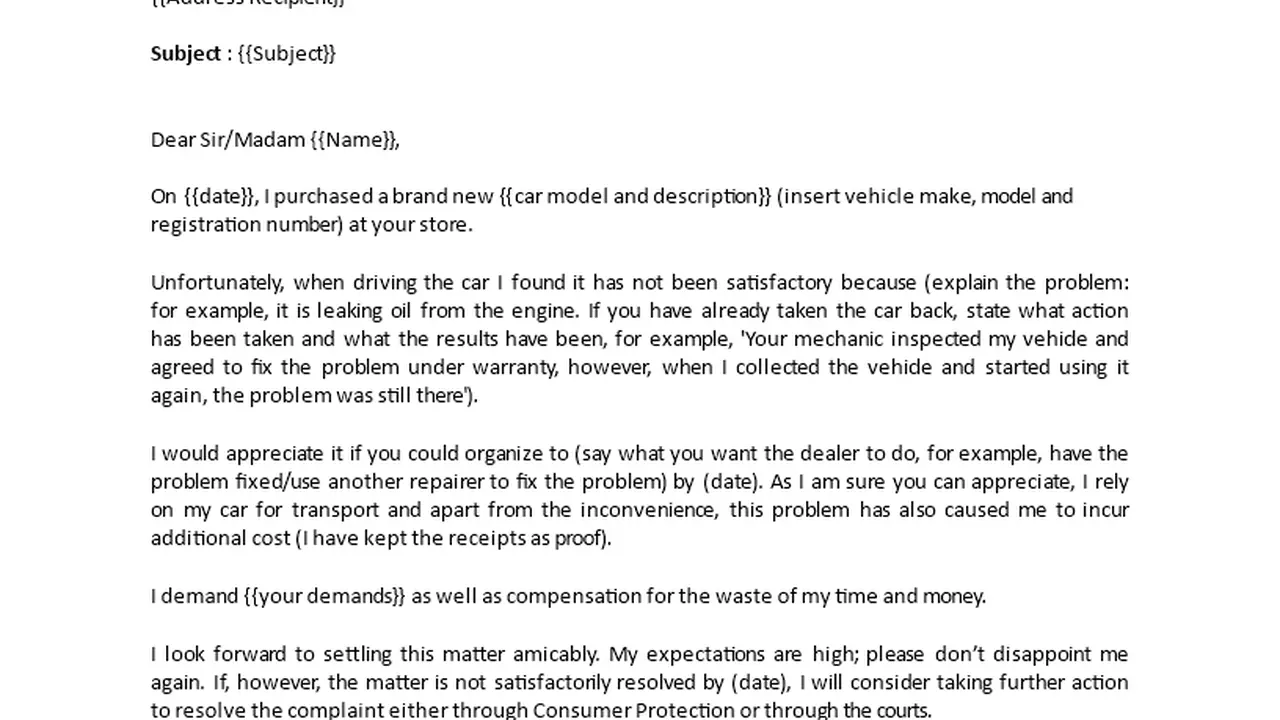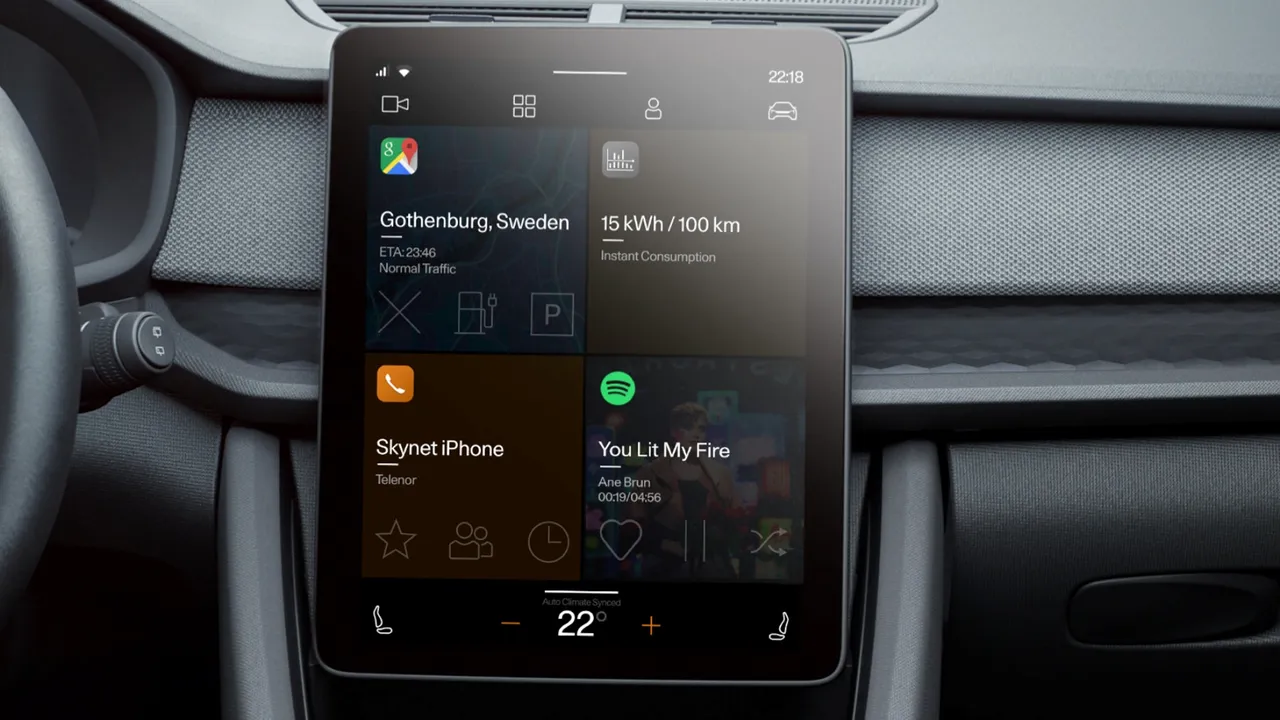Filing a Complaint Against a Car Leasing Company

Understanding Your Rights as a Car Lease Customer
So, you're having issues with your car lease company? That's never fun. But don't worry, you're not alone. A lot of people run into problems with their leases, and thankfully, there are laws in place to protect you. Before you even think about filing a complaint, it's crucial to know your rights. Your lease agreement is your bible here. Read it carefully! It outlines everything from payment schedules and mileage limits to what happens if you want to end the lease early. Pay special attention to clauses about maintenance, repairs, and termination fees. Knowing your rights is half the battle. For example, did you know that most states have lemon laws that can apply to leased vehicles? If your car is constantly in the shop for the same problem, you might be able to get out of your lease without penalty. Also, familiarize yourself with the Consumer Leasing Act, a federal law that protects consumers from deceptive leasing practices. This act requires lessors to disclose certain information to you upfront, like the total cost of the lease, any early termination fees, and the value of the vehicle at the end of the lease.
Identifying Grounds for a Complaint Against a Car Leasing Company Key Phrases
Alright, you've read your lease agreement, and you think the company is doing something shady. What constitutes a valid complaint? Here are some common issues that could warrant action:
- Breach of Contract: The leasing company isn't holding up their end of the deal. Maybe they promised certain features that aren't there, or they're charging you fees that weren't disclosed in the lease agreement.
- Misleading Advertising: They lured you in with a low monthly payment, but the fine print is full of hidden fees and charges. This is a classic bait-and-switch tactic.
- Unfair or Deceptive Practices: This is a broad category that covers anything from charging excessive fees to failing to provide adequate maintenance or repairs.
- Lemon Law Violations: As mentioned earlier, if your car is a lemon, you might have grounds for a complaint under your state's lemon law.
- Unauthorized Charges: You're being billed for services or repairs you didn't authorize. Always, always, always get everything in writing!
- Early Termination Issues: The company is trying to charge you exorbitant fees for ending the lease early, and those fees weren't clearly disclosed in the agreement.
- Maintenance and Repair Problems: The leasing company is failing to provide timely or adequate maintenance or repairs, leaving you with an unreliable vehicle.
Document everything! Keep records of all your communications with the leasing company, including emails, letters, and phone calls. Take photos of any damage to the car. Gather all your receipts for repairs and maintenance. The more evidence you have, the stronger your case will be.
Gathering Evidence and Documentation for Your Car Lease Complaint Case
This is where you become a detective. You need to build a solid case. Think of it like this: you're presenting evidence to a jury (or at least to the leasing company's legal department). So, what kind of evidence are we talking about?
- The Lease Agreement: This is your primary document. Highlight any clauses that support your complaint.
- Correspondence: Emails, letters, and even notes from phone calls with the leasing company. Date and time stamp everything!
- Repair Orders and Invoices: Proof that you brought the car in for repairs and what those repairs cost.
- Photos and Videos: Visual evidence can be powerful. Take pictures of any damage, defects, or issues with the vehicle.
- Witness Statements: If anyone else witnessed the problems with the car or the leasing company's behavior, get their statement in writing.
- Official Reports: Police reports, accident reports, or inspection reports can all be helpful.
- Warranty Information: If the issue is covered under warranty, make sure you have a copy of the warranty agreement.
Organize all your documents in a clear and logical manner. Create a timeline of events to show how the problem unfolded. The more organized you are, the easier it will be to present your case.
Drafting a Formal Complaint Letter Against a Car Leasing Company
Okay, you've got your evidence, now it's time to put it all together in a formal complaint letter. This letter is your first official communication with the leasing company, so make it count. Here’s how to structure it:
- Start with the Basics: Include your name, address, phone number, email address, and the date. Also, include the leasing company's name and address.
- Reference Your Lease Agreement: Clearly state your lease agreement number and the vehicle's VIN (Vehicle Identification Number).
- State the Problem Clearly: Describe the issue you're having with the leasing company in detail. Be specific and avoid vague language.
- Explain the Impact: How has this problem affected you? Has it caused you financial loss, inconvenience, or emotional distress?
- Refer to Supporting Documentation: Mention the documents you're including as evidence. For example, "Please see attached copy of repair invoice dated [date]."
- State Your Desired Resolution: What do you want the leasing company to do to resolve the issue? Do you want a refund, a repair, or to be released from the lease?
- Set a Deadline: Give the leasing company a reasonable deadline to respond to your complaint. Two to three weeks is usually sufficient.
- End on a Professional Note: Thank the company for their time and consideration, and express your hope that the matter can be resolved amicably.
Always send your complaint letter via certified mail with return receipt requested. This way, you'll have proof that the leasing company received your letter.
Where to File Your Car Lease Complaint: Reporting Agencies and Organizations
If the leasing company doesn't respond to your complaint letter, or if you're not satisfied with their response, you have other options. Here are some places you can file a complaint:
- The Better Business Bureau (BBB): The BBB is a non-profit organization that helps consumers resolve disputes with businesses. Filing a complaint with the BBB can often prompt a response from the leasing company.
- The Consumer Financial Protection Bureau (CFPB): The CFPB is a federal agency that protects consumers in the financial marketplace. You can file a complaint with the CFPB online or by phone.
- Your State's Attorney General's Office: Many states have consumer protection divisions within their Attorney General's Office. These divisions can investigate and prosecute businesses that engage in unfair or deceptive practices.
- Small Claims Court: If your damages are relatively small, you can sue the leasing company in small claims court. This is a relatively inexpensive and straightforward way to resolve disputes.
- The Federal Trade Commission (FTC): The FTC is a federal agency that protects consumers from deceptive or unfair business practices. You can file a complaint with the FTC online.
Before filing a complaint with any of these agencies, make sure you have all your documentation in order. The more information you can provide, the better.
Navigating Mediation and Arbitration in Car Lease Disputes Legal
Some lease agreements require you to resolve disputes through mediation or arbitration.
- Mediation: A neutral third party helps you and the leasing company reach a settlement. Mediation is non-binding, meaning you're not obligated to accept the mediator's recommendations.
- Arbitration: A neutral third party hears both sides of the story and makes a binding decision. This means you're legally obligated to abide by the arbitrator's decision.
Carefully review your lease agreement to see if it contains an arbitration clause. If it does, you may be required to go through arbitration before you can file a lawsuit. If you're considering mediation or arbitration, it's a good idea to consult with an attorney to understand your rights and options.
The Role of a Car Lease Attorney: When to Seek Legal Help
Dealing with a car lease dispute can be stressful and confusing. Sometimes, it's best to seek legal help. Here are some situations where you should consider hiring a car lease attorney:
- The Leasing Company is Ignoring You: If you've sent multiple complaint letters and haven't received a response, an attorney can help you get their attention.
- You've Suffered Significant Financial Loss: If the leasing company's actions have caused you significant financial loss, an attorney can help you recover your damages.
- The Lease Agreement is Complex: If you're having trouble understanding the terms of the lease agreement, an attorney can explain them to you.
- You're Facing a Lawsuit: If the leasing company is suing you, you need to hire an attorney to defend you.
- You Suspect Fraud: If you believe the leasing company has committed fraud, an attorney can help you investigate and pursue legal action.
A car lease attorney can review your lease agreement, advise you on your rights, and represent you in negotiations or litigation. They can also help you navigate the complex legal process and ensure that your rights are protected.
Preventing Future Car Lease Problems: Tips for a Smooth Leasing Experience
The best way to avoid car lease disputes is to prevent them from happening in the first place. Here are some tips for a smooth leasing experience:
- Read the Lease Agreement Carefully: Before you sign anything, read the entire lease agreement carefully. Make sure you understand all the terms and conditions.
- Negotiate the Terms: Don't be afraid to negotiate the terms of the lease, such as the monthly payment, the mileage allowance, and the residual value.
- Get Everything in Writing: Make sure all promises and agreements are in writing. Don't rely on verbal assurances.
- Inspect the Car Thoroughly: Before you take possession of the car, inspect it thoroughly for any damage. Document any existing damage in writing.
- Maintain the Car Properly: Follow the manufacturer's recommended maintenance schedule. Keep records of all maintenance and repairs.
- Keep Accurate Records: Keep copies of all your lease documents, including the lease agreement, payment receipts, and repair orders.
- Be Aware of Mileage Limits: Keep track of your mileage to avoid exceeding the mileage allowance.
- Understand Early Termination Fees: Before you sign the lease, understand the fees you'll be charged if you terminate the lease early.
Understanding Car Lease Return Inspections and Potential Fees
The end of your lease is just as important as the beginning. The lease return inspection is where a lot of disputes arise. Be prepared!
- Schedule an Inspection: Most leasing companies require you to schedule an inspection of the vehicle before you return it.
- Clean the Car: Thoroughly clean the car inside and out before the inspection.
- Repair Any Damage: Repair any damage that exceeds normal wear and tear. Dents, scratches, and broken parts can all result in fees.
- Review the Inspection Report: Carefully review the inspection report. If you disagree with any of the findings, document your concerns in writing.
- Negotiate Excess Wear and Tear Charges: Try to negotiate the excess wear and tear charges with the leasing company. You may be able to get them reduced or waived.
Document the condition of the car with photos and videos before returning it. This can be helpful if you later dispute the leasing company's assessment of the damage.
Car Lease Buyout Options: Is Purchasing Your Leased Vehicle Right for You?
Instead of returning the car, you might have the option to buy it. This can be a good option if you like the car and it's in good condition.
- Calculate the Buyout Price: The buyout price is typically stated in your lease agreement. It's usually based on the residual value of the car.
- Compare Prices: Compare the buyout price to the market value of the car. You can use online resources like Kelley Blue Book and Edmunds to get an estimate of the car's value.
- Consider Financing Options: If you decide to buy the car, you'll need to arrange financing. You can get a car loan from a bank, credit union, or online lender.
- Factor in Taxes and Fees: Don't forget to factor in taxes and fees when calculating the total cost of buying the car.
Buying out your lease can be a good option if the buyout price is fair and you want to keep the car. However, it's important to do your research and make sure it's the right decision for you.
Product Recommendations for Car Lease Maintenance and Protection
Keeping your leased car in tip-top shape is key to avoiding those pesky end-of-lease fees. Here are a few products I recommend, broken down by scenario:
Interior Protection
Scenario: You have kids or pets, or you're just prone to spills.
- Product: 303 Automotive Interior Cleaner & Protectant
- Description: This product cleans and protects vinyl, plastic, rubber, and finished leather. It leaves a matte finish and provides UV protection to prevent fading and cracking.
- Usage: Spray directly onto the surface and wipe clean with a microfiber cloth.
- Comparison: Compared to Armor All, 303 offers better UV protection and leaves a less greasy finish. Armor All is cheaper, but 303 is worth the extra cost for long-term protection.
- Price: Around $15-20 per bottle.
- Product: WeatherTech FloorLiners
- Description: Custom-fit floor mats that provide complete coverage for your car's floor. They're designed to trap dirt, mud, and spills.
- Usage: Simply place them in your car. They're easy to remove and clean.
- Comparison: Compared to standard carpet floor mats, WeatherTech FloorLiners offer superior protection and are much easier to clean. They're more expensive, but they'll protect your car's carpet from damage.
- Price: Around $100-200 per set.
Exterior Protection
Scenario: You live in an area with harsh weather conditions, or you want to protect your car's paint from scratches and swirl marks.
- Product: Meguiar's Ultimate Liquid Wax
- Description: A synthetic wax that provides long-lasting protection and shine. It's easy to apply and remove, and it can be used on all types of paint.
- Usage: Apply a thin coat of wax to the car's surface using a foam applicator pad. Let it dry for a few minutes, then buff it off with a microfiber cloth.
- Comparison: Compared to traditional carnauba wax, Meguiar's Ultimate Liquid Wax offers better durability and water beading. Carnauba wax provides a richer shine, but it requires more frequent application.
- Price: Around $20-25 per bottle.
- Product: Chemical Guys HydroSlick SiO2 Ceramic Coating HyperWax
- Description: Provides a layer of protection against UV rays, water spots, and other environmental contaminants.
- Usage: Apply a thin layer to a clean car surface. Let it cure for a few minutes and wipe off.
- Comparison: This is a more advanced solution that protects the paint from scratches and minor damages. The cost is higher, but it provides a long-lasting shine and protection.
- Price: Around $30-40 per bottle.
Tire and Wheel Protection
Scenario: You want to keep your tires and wheels looking their best.
- Product: Armor All Tire Shine
- Description: A tire shine that provides a glossy finish and protects tires from cracking and fading.
- Usage: Spray directly onto the tires and let it dry.
- Comparison: Compared to other tire shines, Armor All is affordable and easy to use. However, it can attract dirt and dust. Black Magic Tire Wet offers a longer-lasting shine, but it's more expensive.
- Price: Around $5-10 per bottle.
- Product: Mothers Wheel Mist All Wheel Cleaner
- Description: A wheel cleaner that removes brake dust and grime without damaging the wheels.
- Usage: Spray directly onto the wheels and let it sit for a few minutes. Then, rinse with water.
- Comparison: Compared to other wheel cleaners, Mothers Wheel Mist is safe for all types of wheels. It's also pH balanced and non-acidic.
- Price: Around $10-15 per bottle.
Remember to always read and follow the manufacturer's instructions when using any of these products. Regular maintenance and protection will help you keep your leased car in good condition and avoid those end-of-lease fees.
:max_bytes(150000):strip_icc()/277019-baked-pork-chops-with-cream-of-mushroom-soup-DDMFS-beauty-4x3-BG-7505-5762b731cf30447d9cbbbbbf387beafa.jpg)






